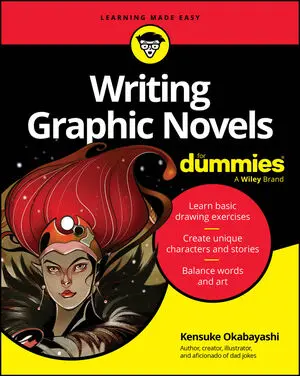So why self-publish your children's book? Maybe you’ve huffed and puffed and you still can’t get an agent or publisher interested in your book. Maybe you want complete creative control, and the only way to get that is to do everything yourself. Or maybe you just want to keep all the proceeds from selling your printed book.
Here are some of the best reasons for taking the self-publishing road in print:
It provides you a viable (and perhaps the only) alternative for getting your book into print. Most children’s book publishers reject 95 percent or more of the manuscripts they receive. Self-publishing offers rejected authors a path to being published that traditional publishers may not be willing to provide.
Self-publishing is way faster. It can take 18 months or more to go from pitching your idea to an agent or traditional publisher to finally seeing your book in print. With self-publishing, you can go from final, edited manuscript to e-book (or even hardcopy) in just weeks. And with the advent of self-publishing platforms such as iBook Author and Vook, this time can be reduced to days.
You’re the boss! When you print and publish your own book, you keep the rights to your work, you decide what words and illustrations lay between the covers, and you set your own writing and production schedule.
You get to keep most of the profits. Traditional publishers and agents take a big cut of the proceeds from your book sales. If you’re organized, willing to learn about the business, and have a knack for marketing, you can make just as much money — or more! — self-publishing as you would if your book were published by a traditional publisher.
Some books actually are better off self-published. If you’ve written something for a small, niche audience that you have direct access to, it may be the best way to get your book to that audience and keep the largest portion of profits.
Part of what a large publishing house offers is broad distribution, a sales force, and a marketing and publicity team, but if your book doesn’t need that, self-publishing may be a good way to go.
You may be able to turn your successful self-published children’s book into a successful, traditionally published children’s book. Sometimes self-published books that sell a lot of copies attract the interest of a traditional publisher, which can be your golden ticket to success as a children’s book author.
Although this is rare, a few self-published authors have managed to sell a ton of books on their own and/or ended up on a bestsellers list.
Just as you may have plenty of good reasons to put your own printed book on the market, you’re going to run across a number of reasons to pass on this option. Here are just a few:
Self-published books are still taken less seriously than traditionally published books. Unfortunately, few legitimate and credentialed reviewers, reviewing sites, or reviewing venues bother reviewing self-published books, and few bricks-and-mortar bookstores carry them. This can be a problem because those sites, publications, and venues are where many people find out about books they choose to buy.
Self-publishing is hard work. Writing, illustrating, laying out text and art, and arranging for printing, distribution, and promotion of a print book is no small task. That’s why the first choice of many authors is to approach a publisher or agent when they have a manuscript they want to turn into a printed book.
Self-publishing isn’t necessarily cheap. Some authors who have selected the self-publishing path spend upward of $25,000 or more to create, print, and bind a couple thousand copies to hand out to family, friends, clients, and associates.
You don’t get to keep all the money. Most print-on-demand (POD) publishing platform providers will want a piece of your proceeds, as will your distributors (Amazon.com, Barnes & Noble, and so on). If you go directly to a printer, you will have to pay them in advance of selling a single copy.
You can get scammed. A number of shady operators know some people will do most anything to get their books into print, and these folks know what buttons to push to separate you from your hard-earned money. Be careful with self-publishing promises that seem too good to be true — they may be just that.
To self-publish often requires a renegade’s personality: a willingness to go against the grain, push huge boulders uphill, scoff off rejections as misguided, and simply forge ahead. Ready to give it a try?






